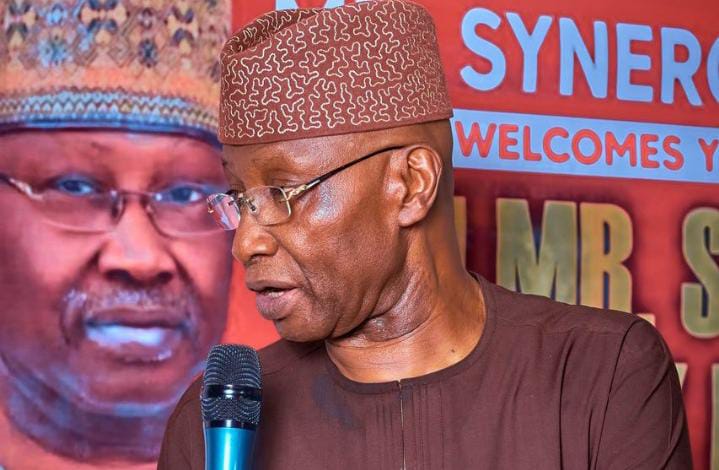Analysis
Beyond the man: How Tinubu is building on Buhari’s legacy for a new Nigeria- Boss Mustapha

The unveiling of “According to the President”, a new book by former presidential spokesperson Garba Shehu, has done more than offer a peek into the governing philosophy of Muhammadu Buhari. It has reignited a national conversation about legacy, leadership, and the delicate handover of reforms between successive administrations.
At the launch, former Secretary to the Government of the Federation, Boss Mustapha, delivered what many are calling a defining tribute to the Buhari era. His message was clear: Buhari may have exited Aso Rock, but the architecture of reform he initiated is alive—and evolving—under President Bola Tinubu.
Buhari’s legacy: Foundations of reform
While critics often faulted Buhari’s aloof style and rigid administrative posture, few can ignore the scale of structural reforms initiated under his watch. The Petroleum Industry Act, for instance, ended decades of policy inertia in the oil and gas sector, laying a new regulatory framework that encourages investment and clarity.
Then came the massive infrastructure blitz—roads, railways, bridges, and airports—aimed at closing Nigeria’s infrastructure deficit. Social intervention programs like the National Social Investment Programme (NSIP) also brought millions under the umbrella of government-led poverty reduction schemes.
These efforts, as Mustapha emphasized, were not just policies but foundations—a springboard for Nigeria’s future.
Tinubu’s consolidation: Continuity over change
Where past presidents may have chosen to dismantle their predecessor’s legacy, Tinubu has taken a more strategic path: consolidation. His administration’s move to deregulate the power sector, for example, shows a willingness to go beyond political posturing and address Nigeria’s decades-old electricity bottlenecks.
Reforms in civil service performance and tax administration also reflect a governance philosophy that values systemic changes over populist gestures. From digitizing tax collection to setting performance benchmarks for civil servants, Tinubu appears keen on refining what he inherited rather than reinventing the wheel.
Boss Mustapha summed it up best when he said, “The baton of leadership has passed, but the relay of reform continues.”
The shift to institutional governance
What is emerging from this transition is a subtle but significant shift—from personality-led governance to institutional continuity. The political culture of building and abandoning is being challenged. For once, governance in Nigeria seems to be following a relay model, where policy baton-passing takes precedence over ego-driven erasures.
This change matters. Nigeria’s development has long been undermined by the tendency of each administration to discard its predecessor’s initiatives. The Tinubu-Buhari continuum suggests a break from that cycle, with long-term planning now given the room to breathe.
A book, a moment, a message
Garba Shehu’s book does more than offer anecdotes from inside the Villa—it captures the strategic mindset of the Buhari years. But more importantly, its timing and reception underscore a rare alignment in Nigerian politics: where yesterday’s vision is shaping today’s execution.
As Nigerians navigate the tough realities of economic adjustment and institutional reform, this synergy between legacy and consolidation could be the stability the country needs.
In an era often defined by discord and disconnection, it is refreshing—if not revolutionary—to witness a political transition marked by continuity. Whether this experiment in governance synergy will stand the test of time remains to be seen. But for now, Nigeria is, perhaps for the first time in a long while, walking a path lit by policy foresight rather than political firefighting.
For Diaspora Digital Media Updates click on Whatsapp, or Telegram. For eyewitness accounts/ reports/ articles, write to: citizenreports@diasporadigitalmedia.com. Follow us on X (Fomerly Twitter) or Facebook
Continue Reading












